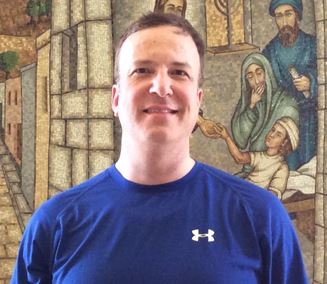
The parable of The Prodigal Son from the gospel of Luke is a wonderful illustration of how Jesus turns a spirituality of climbing, achieving, and perfectionupside down. The younger brother who had done it wrongwas now being humbled, forgiven, transformed, and rewarded. The older brother was proud, done everything right, felt superior, entitled, but remained unopen to God’s blessing. This is Jesus’ Great Reversal Theme. Jesus was aware that sometimes the only things strong enough to break open our hearts were things like pain, mistakes, unjust suffering, tragedy, failure, and the general absurdityof life. I wish it were not so, but it clearly is.
In Henri Nouwen’s famous book, The Return of the Prodigal Son, the author asks the reader to examine each character in the story. According to Nouwen, we are, at various points in our lives, the father, the prodigal, and the elder son. I think that’s right. I would also postulate that of the two sons, the prodigal ends up being spiritually healthier at the end of the story, while the elder son remains spiritually broken. Fr. Richard Rohr, a Roman Catholic priest, writer, and lecturer, states that one of the key lessons aboutThe Prodigal Sonis recognizing how we handle the imperfection that is everywhere, especially our own. That is why I believe the prodigal son was more spiritually healthy at the end of the parable and the elder son was not. The prodigal had finally come to terms with his own imperfections. The elder son, not so much. For Jesus, the primary concern is one of presence. Have we shown up or are we lost and missing? For Jesus, the defining characteristic of sin is not misbehavior but being lost.
The parable of The Prodigal Sonis not about being or doing wrong, it is about being lost. It is not about culpability, blame, or finding fault. Jesus’ concern is for the one that is lost, missing, and absent. Jesus doesn’t blame or judge. For Jesus, it is about recoveringand reclaiming the lost. Jesus knew that we as human beings can be good, hard working, successful in our career, yet still feel lost, without a true sense of direction or meaning. We can be holding it all together and still be lost in the depths of grief or despair. We can be a good spouse, doing all the right things, giving all the right appearances, and still be lost. We can have a good reputation and be lost in questions of our own identity and purpose. We can be so busy and productive that we are lost to the wonder, beauty, and mystery of life. We can say and do all the right things and be lost in a secret life that is self-destructive and hurts others.
By Jesus’ telling this parable, he reveals God’s character, God’s grace, God’s very way of being. That grace and character are revealed in Jesus’ searching, finding, and rejoicing, three manifestations of God’s one grace. Depending on the circumstances of our lives, we experience grace as searching, finding, and rejoicing. Ultimately, it means we each matter. We are uniquely desired by and important to God. This fellow who welcomes sinners and eats with them is constantly searching for us, finding us, and rejoicing over our presence. Jesus offers us something that no one else can or will. Life will lead us to the edge of our own resources, to an experience or situation that we may not be able to fix, control, or understand. But that is precisely where faith begins.
Let us pray for God’s guidance whenever we may feel lost, missing, or absent: Lord, you are great and awesome, and we fight for our sons, our daughters, our spouses and our families. Give safety to our children, save them and ease them day by day…. You are our LORD, our Savior, our Redeemer, and the Mighty One of Jacob. We proclaim our children as a heritage and a treasure from You.
According to Your promise we are asking You to pour Your Holy Spirit and Your blessings on our children. Create in them a love for Your Word. Lord, thank you for choosing our children before the foundation of the world and calling them in their youth. Our children are a chosen generation, a royal priesthood, and a holy nation. They are Your own special people. Father, confirm Your word and hallow Your name in the lives of all our children for Your greater glory and honor. In Jesus’ name we pray. Amen.
1. Accepting love, forgiveness, and healing is often much harder than giving love and forgiveness. If this is true for you, what keeps you from accepting love, forgiveness and healing?
2. In your own spiritual struggle, where have you looked for God? What is the importance of prayer in your spiritual life?
3. Can you think of something for which you have not yet forgiven yourself? How does our failure to accept God’s absolute forgiveness limit our understanding of God?
4. Given all the darkness in our world there is much temptation to be cynical. When are you inclined toward cynicism? How do you respond to people who are perpetually cynical?